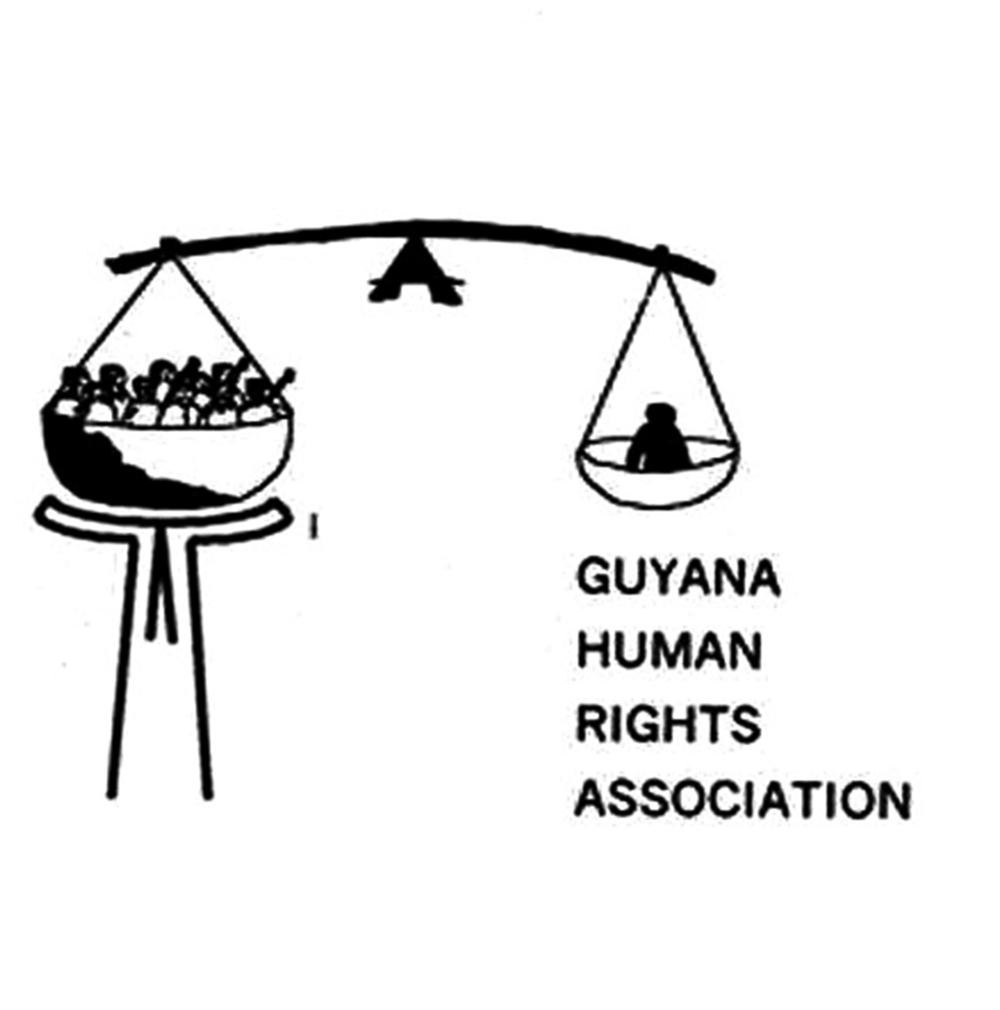The Guyana Human Rights Association (GHRA) has expressed concern that the PPP/C government may be engaged in a strategy to control and muzzle non-governmental organisations (NGOs) in Guyana.
The association in a release yesterday, pointed to a column carried in the state-owned Guyana Chronicle on June 6 with the heading “This NGO caricature must stop”. While it was not stated in the release, this column was written by Freddie Kissoon.
According to the GHRA, the column is designed to discredit NGOs and does so by a deliberate distortion of facts. The GHRA further contends that the column is best understood as a contribution to the campaign announced at the ruling PPP’s recent Party Congress to vigorously go after the ‘naysayers’ in civil society. It warned that the culmination of this campaign may well be manifest in the currently unavailable draft legislation on NGOs for which the Governance Minister, Gail Teixeira is responsible.
The GHRA quoted segments of the column which it interpreted as suggestions on the kind of controls the legislation might contain. “One hopes that in the legislation that numbers, elections and term limits are imposed on the NGOs….An organisation must have numbers because such numbers reflect national standing. There must be a register of members, with the requirement that each NGO must have a membership of at least 40 persons and an executive of no less than ten members. There must be term limits of two terms only for the chairman, with each term being for two years…These NGOs and civil society groups are relentless in their criticism of the government in relation to transparency and accountability. The people who encourage this lopsidedness are the Western embassies through generous donations.”
According to the release, “This authoritarian and sexist approach to NGOs appears to be straight out of the ‘democratic centralism’ playbook, the bit of Marxism-Leninism to which the party renewed its commitment at the recent Congress.”
The GHRA said that justification for this level of control is reduced in the column to “a series of malicious innuendos.” It pointed out as an example, that the Guyana Human Rights Association, is stated twice to have received “a generous donation from the British High Commission,” which the GHRA says is a distortion of the facts. The truth of the matter, it went on, is that the BHC offered to host a workshop to build human rights capacity among non-governmental organisations. The GHRA supplied a list of potential participants who were then invited directly by the BHC. It asserted that neither the GHRA nor individual members sought or received any monies, while the BHC paid all expenses directly, including and travel and accommodation of the workshop director, venue, and refreshments for participants.
As such, the GHRA opined that the Chronicle column was clearly intended as a contribution to discrediting NGOs before launching the proposed NGO legislation by ridiculing them by whatever means possible. It added that long-standing NGO activists associated with non-partisan organisations are pinpointed by name and ridiculed on the unproven grounds of never having been re-elected.
“While the focus of the article is clearly on NGOs, the section from the article quoted above can easily be extended to apply to any civic body – sporting, cultural, humanitarian or religious. To this extent, non-governmental bodies generally rather than adopt a complacent ‘it couldn’t happen to us’ attitude should pay attention. We all have a stake in how our society should be governed. We should not be intimidated into silence,” the release added.
Over the last few years senior members of the government have launched unrelenting attacks on some NGOs and enlisted a number of commentators to join in the task.
There have also been signs that western embassies have made a concerted effort to underline the importance of civil society.
On European Union Day on May 9th, European Union Ambassador René van Nes said “Success also comes through partnerships and we have seen tremendous progress in our cooperation with civil society. The EU is a strong believer in and supporter of a vibrant civil society, both in the EU and abroad. Why? Because civil society allows citizens to take an active part in contributing to the political agenda”.
He added: “This improves the quality of policy formulation, and it strengthens the bond between the government and its people. This is why we are proud to support some successful projects implemented by ChildLinK, the Amerindian Peoples’ Association, and the Guyana Marine Conservation Society”.
Earlier in May, the British High Commission was involved in arranging a human rights workshop at which the GHRA and other local groups were present.
At the closing ceremony for the workshop, British High Commissioner to Guyana, Jane Miller affirmed the UK’s unwavering solidarity with human rights defenders worldwide, whether through bilateral engagements or collaborative efforts with multilateral agencies like the United Nations. Miller underscored the natural synergy between the British High Commission and the GHRA, highlighting their shared commitment to advancing human rights in Guyana.
Later in May, a visiting delegation from the New York Police Department held a meeting with non governmental organisations. US Ambassador to Guyana Nicole Theriot was present at the meeting.






